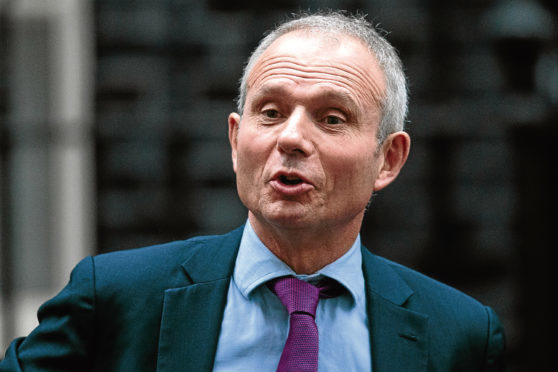It is obvious that David Lidington, who replaced Damian Green as Theresa May’s deputy, is new to the job.
Ahead of a speech on Monday, he implored the Scottish Government to work with Westminster to achieve a successful Brexit deal. It sounded very much like an appeal to the SNP’s better nature but as a more experienced cabinet minister would know, the Nationalists do not have a better nature when it comes to cross-border relations.
You could imagine Nicola Sturgeon and her inner circle chortling over Mr Lidington’s rhetoric as he spoke of the return of EU powers to Holyrood after Brexit and the need for common regulations across all parts of the UK.
“We could choose to leave as a country split and an economy disjointed, struggling to make our way in a new world outside the EU,” he wrote in a Sunday newspaper. “Or we can come together as one United Kingdom, confidently seizing new global opportunities as we build a prosperous, secure nation fit for the future.”
Nothing Ms Sturgeon has done since becoming First Minister – since joining the SNP, in fact – has betrayed a desire to be at one with the United Kingdom.
A disjointed UK economy would be manna to her and her fellow separatists, and a country split is exactly what the independence movement craves above all else.
Mr Lidington presumably is not so naïve as to think his words will get him far in Scotland, but in a speech in Wales he addressed all the devolved nations, seeking cooperation over Brexit and UK unity. He warned that different rules between the four countries over food safety, for example, or chemical standards would create major problems when Theresa May tries to nail a deal for the whole of Britain.
But his attempt to get Scotland to act in the national (that is, the UK) interest is doomed. From the day Britain voted to leave the EU in June 2016, the SNP has exploited Scotland’s pro-Remain result as an excuse to further the secessionist dream.
Mr Lidington may have appeared surprised that some in the UK want to use Brexit to “loosen or even sever” ties between the various parts, but in Scotland we are ground down by such tactics. Having failed to galvanise support for independence in the wake of the EU referendum, Ms Sturgeon has sometimes had to tone down her demands for another constitutional ballot. But she is incapable of dropping the notion altogether, even though it is deeply unpopular in Scotland and cost her half a million votes at the last general election.
Instead, she keeps casting around for grievances that she hopes will resonate with voters; a favourite is the “power grab” she claims Westminster is plotting in the transfer of control from Brussels to London.
Mr Lidington was at pains to point out that all the devolved governments will be given many more powers than they currently have, offering greater devolution after Brexit. But the SNP is not angling for more devolution, which would only dilute its case for all-out independence.
In this, the Scottish Nationalists are out on a limb. Both Wales and Northern Ireland have a vested interest in gaining more powers, and in a UK economy that is buoyant post-Brexit. Scotland does too, of course, but what suits Scotland does not necessarily suit the SNP.
While the devolved administrations of Cardiff and Belfast will want the UK’s withdrawal from the EU to work, whatever their political position over the 2016 referendum, Edinburgh under its present regime wants no such thing.
So what does Ms Sturgeon plan to do next? She and her Brexit minister, Mike Russell, could go on bleating about power grabs but this is not going to lead to any major shift in public opinion north of the border. There has been a backlash against calls for a new independence referendum and even diehard Nationalists, such as the Perth and North Perthshire MP Pete Wishart, have warned the leadership of the folly in linking the separatist cause to Europe, which a significant number of Nats voted to leave, anyway.
Here’s a suggestion which will no doubt fall on deaf ears: Ms Sturgeon could change tack now, accept that Brexit is not the route to breaking up Britain, and do something to ensure Scotland will be strong outside Europe.
If a UK framework is what is needed to maintain our existing export markets and develop the growing ones, that is what Scotland, along with the other devolved nations, must agree to. The choice is between waging narrow political battles on behalf of the few or, as Mr Lidington said, using the “leverage and diplomatic network of the UK to sell Islay whisky, Caerphilly cheese and buses from Ballymeena throughout the world”. It really is no contest.
